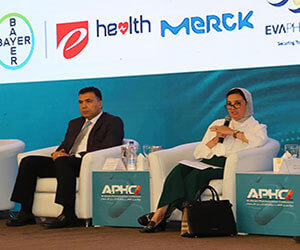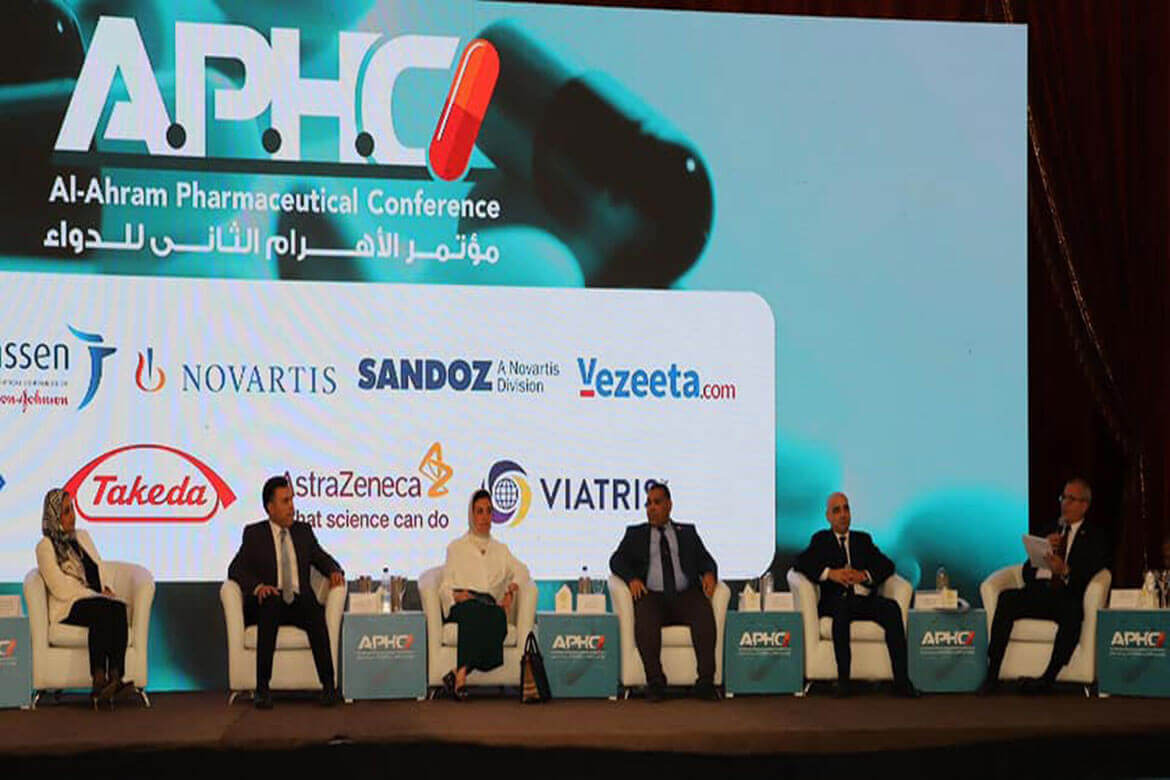In the closing session of the Al-Ahram Conference for Medicine... "Pharmaceutical Research and Development…Problems and Solutions"
The participants concluded the second Al-Ahram Conference for Medicine, organized by the Al-Ahram Foundation, under the patronage of Dr. Mostafa Madbouly, Prime Minister, the fourth and final session of the first day program of the conference, which came under the title “Pharmaceutical Research and Development ... Problems and Solutions”, headed by Dr. Ayman Al-Khatib - Vice President drug body.
Dr. Amani Osama Kamel, Professor of Pharmaceutics and Industrial Pharmacy and Dean of the Faculty of Pharmacy, Ain Shams University, described research and development as weakness, and this conclusion is based on several determinants and criteria, the most important of which is that until recently there was no clinical trial law in Egypt, in addition to the weakness of my long-term research vision. Most pharmaceutical companies, poor spending on research and development.
This weakness was also evidenced by the weak cooperation between pharmaceutical companies and universities in the field of research, despite the presence of excellent research outputs.
She added that Ain Shams Pharmacy has 800 research published internationally in the last five years, including 300 published in "Q1" magazines.
It recommended the need to work on cooperation between universities, hospitals, industry and government, with an entity capable of developing a specific structure for the form of cooperation and drafting a unified contract for the purpose of protecting intellectual property.
 |
 |
Dr. Imad Basilios, Professor at Faculty of Pharmacy in Cairo University, declared in his paper entitled “Research and development and bridging the gap between academic and industrial research”, the important role entrusted to the Industry Localization Committee, especially in working to overcome obstacles to transferring complex technology from abroad, or supporting research inside universities.
Where he described that the transfer of complex technologies from abroad and their integration into the local industry is a difficult process and has many determinants and caveats, the most important of which is that the production, administrative and technical processes inside factories are subject to international quality systems in an integrated manner, and not deficient as there is inside their factories, which requires intervention by the authority Medicines and regulatory authorities to rehabilitate local factories.
Dr. Imad believes that research at the university is not complete and stops at the stage of devising effective materials and conducting research on them for the purpose of publishing them in research journals, and they are not being developed or converted into final products usable for industrial use.
The review of the work strategy of the "reference laboratory", and its role in supporting pharmaceutical research and development and the pharmaceutical industry, came in a speech by Dr. Medhat Ghobashi, head of the Central Administration for Drug Control at the Egyptian Medicines Authority, especially in light of the difficulties faced by private research centers inside factories, as they are unable to access Research results that address their industrial problems, due to poor technical or technical capabilities.
He explained that there are approved mechanisms that must be available when conducting research and studies in solving problems required by factories, which necessitates that researcher be aware of the importance of the solutions provided being applicable.
Dr. Shahda Al-Maraghi, Acting Dean and Vice Dean for Student Affairs, Faculty of Pharmacy, Cairo University, spoke about the university’s role in serving national and national goals, the national economy and community partnership, and the importance of thinking about increasing the capacity for innovation in the industrial sector.
She referred to the leadership of the Faculty of Pharmacy, Cairo University, in an coalition with partners of knowledge, industry and civil society, for the purpose of producing Egyptian pharmaceutical products, on a technological basis and with the support of the Academy of Scientific Research.
The coalition succeeded in producing “APLS” active raw materials, effective vegetable raw materials, nutritional supplements and cosmetics, in addition to diagnostic reagents.
.svg)




